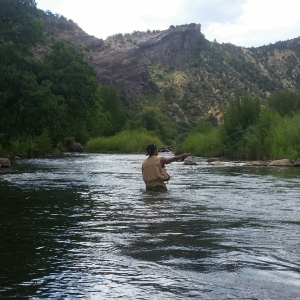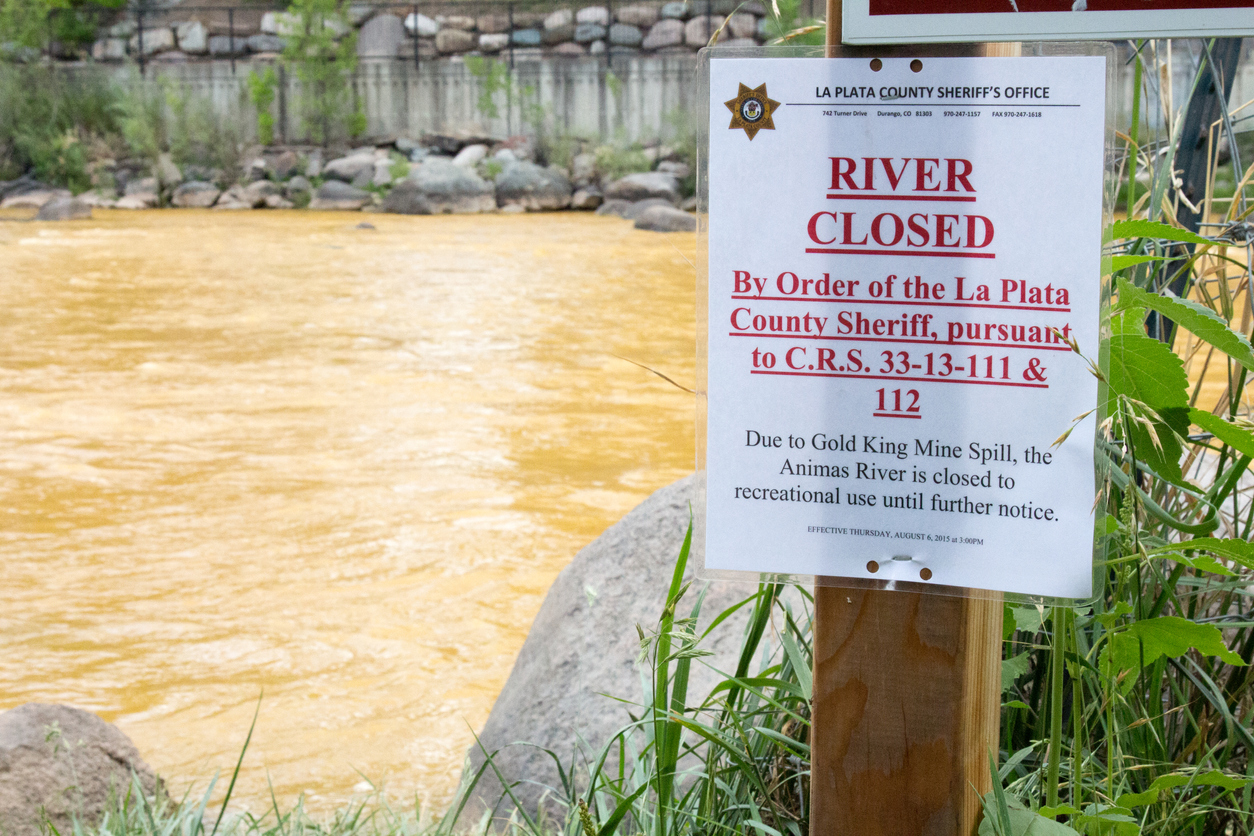 Here’s my open letter to Colorado Governor Hickenlooper asking that restorative justice be used to address the spill of mining waste into the Animas River.
Here’s my open letter to Colorado Governor Hickenlooper asking that restorative justice be used to address the spill of mining waste into the Animas River.
August 10, 2015
Dear Governor,
As many of us now know, on August 5, 2015 an estimated three million gallons of mine waste poured into the Animas River in southwestern Colorado, turning a beautiful and much loved trout stream into a toxic, yellow plume. The Animas will carry at least some of this toxic waste into the San Juan River, which then feeds into the Colorado, affecting a great many downstream users and a large swath of ecosystem.
The big question now seems to be: How can we fully assess and then repair the harm to residents and the environment, as well as assure, to the best of our ability, that no similar accident happens again? I am pretty sure that the best approach is through the principles and practices of restorative justice.
It is no secret, that in the criminal justice and educational systems where it is most widely used, restorative justice brings out the best in people and creates the collective wisdom needed to transform conflict on a regular basis. In an atmosphere of respect that prioritizes relationship, responsibility, and repair, restorative justice creates a process where real communication becomes possible.
I believe it is time to expand these values into the full range of social and environmental issues we grapple with. In the process we would move in a paradigm-shifting direction where the full picture can be seen, and where we can practice treating each other with respect, taking responsibility, and repairing harm, even when—especially when—it isn’t easy.
This would be very different from standard open house and town hall meeting formats— where government representatives answer questions with a minimum of real dialogue and then politely listen to citizen testimony with no dialogue—followed by the usual acrimony and litigation. How well has that worked?
How well restorative justice would work is a more open-ended question, but I know that if the people involved are up to the challenge, this tried and true way of resolving conflict will provide good support.
As you know, Colorado is a stronghold of restorative justice programs and practitioners. We are well positioned to lead the way in expanding the use of its principles and practices to create healthier, more resilient communities, and make government more responsive to the needs of the people.
I know many other restorative justice professionals would join me in assisting in a restorative approach. Would you be willing to lead a discussion about this?
Thank you for your time and I look forward to your response.
Sincerely,
Scott Brown
Co-founder, Colorado Center for Restorative Practices


Scott,
The novel idea of using Restorative Justice in venues of conflict outside the criminal justice system is great. I think it can be particularly useful in regard to environmental concerns. I appreciate your insight into this possibility.
With Appreciation,
David
Awesome Scott!
I have seen restorative justice repair harms in community, family and self in many youths in my over two years experience as a volunteer. The transformational power of RJ is amazing. I agree that it has great potential to serve as a restorative practice in the case of environmental harms caused by us, whether it happens by neglect or just simple ignorance. I support you in your effort to affect change in such a positive and healing manner.
Michael
Scott,
Thank you for starting a conversation that asks us to rethink how to best approach issues within our communities. I too have grown weary of the indirect approach found in most hierarchal government to community relationships. A direct conversation is always best, and directness must allow for a genuine back and forth on the issues at hand.
I’ll keep your vision in my heart.
Always,
Matt
This spill, of course, is absurd. Someone at the EPA made a bad decision that has affected thousands and thousands of people and millions of critters.
Very interesting post Scott. I have fished and rafted the Animas many times and my first reaction when I read about the spill is “heads need to roll”! But in my calmer moments I know the EPA didn’t intend this, and they were doing their best with a difficult situation managing just one toxic mine (there are thousands more just like it across the state).
I welcome a positive dialog targeted at restorative communication, and I would be there to participate.
An elder of mine said frequently that “communication is the solution to every problem.” An open dialogue with a focus on actual and meaningful restoration, is what the people of Durango deserve. Step up to the plate, Gov!
The last thing we need is politician mealy mouth speak. A genuine dialog will be refreshing.Scott thanks for putting a new possibility out for consideration.